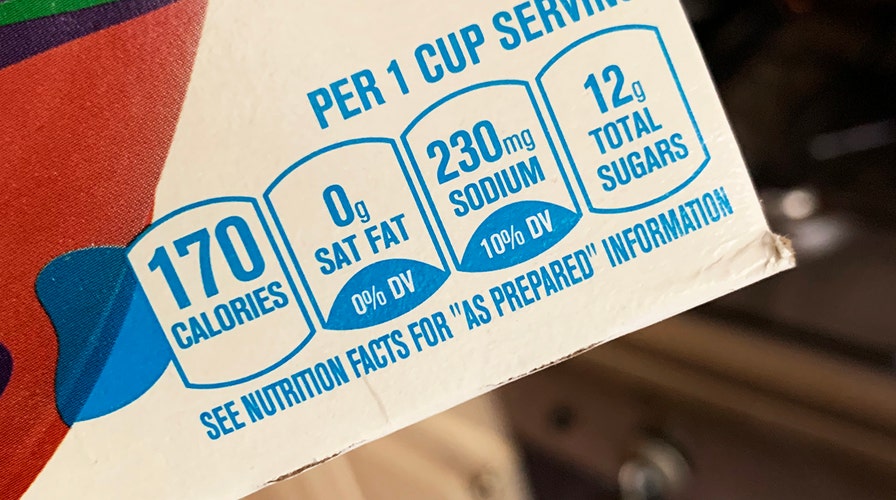Navigating nutrition facts on food labels
Manufacturers accused of misleading consumers using tricky wording
A 16-year study on the effects of front-of-package (FOP) nutrition labels on food products suggests a correlation between the optional labels and the quality of nutrition within those foods, along with the foods of their competitors.
The results of the study, conducted by researchers at North Carolina State University, were released this week.
Front-of-package food labels are currently voluntary in the food industry, though many major brands have adopted the labels in addition to the more common and FDA-required “nutrition facts” often seen on the back or sides of food packaging. For the purposes of this study, the researchers looked at the “Facts Up Front”-style of label, which often showcases specific nutritional criteria – e.g., calorie, fat, sugar or sodium content – per serving.

The study, from researchers at North Carolina State University, studied the effects of the "Facts Up Front"-style of nutrition labels. (Fox News)
“We wanted to know whether food companies were responding to increased public interest in healthier food,” said study co-author Rishika Rishika, an associate professor of marketing in North Carolina State University’s Poole College of Management, in the press release. “In other words, is the market driving change in the nutrition of food products? And the evidence suggests that this is exactly what’s happening.”
WAFFLE HOUSE BRAWL SHOWS AT LEAST 7 EMPLOYEES AND CUSTOMERS FIGHTING
Researchers gathered their data from over 21,000 products across over 9,000 brands, between the years of 1996 and 2011. They then focused on two criteria: how certain food categories changed over the years after at least one product adopted the FOP labeling, and how certain food categories changed (or didn’t) when none of the products in the category adopted the labeling.
“The results showed a clear association between FOP labeling and changes in the nutritional content of food products,” according to NC State researchers.
Specifically, products with FOP labeling showed “improved nutritional quality,” as did those products’ competitors.
FOLLOW US ON FACEBOOK FOR MORE FOX LIFESTYLE NEWS
Rishika believes the study supports her original hypothesis that the FOP labels caused “competitive pressure on other brands in that category to innovate and improve the nutritional quality of their products."
In addition, the study took certain note of trends that emerged, including associations that showed “premium” brands to be more responsive than non-premium brands.
CLICK HERE TO GET THE FOX NEWS APP
Rishika admitted, however, that further research needs to be done to determine whether consumers were more swayed by the fact that certain brands chose to display the FOP labels (thereby earning more trust among shoppers) or that the FOP labels simply made it easier to shop.
“Those are questions for future research,” she said.

